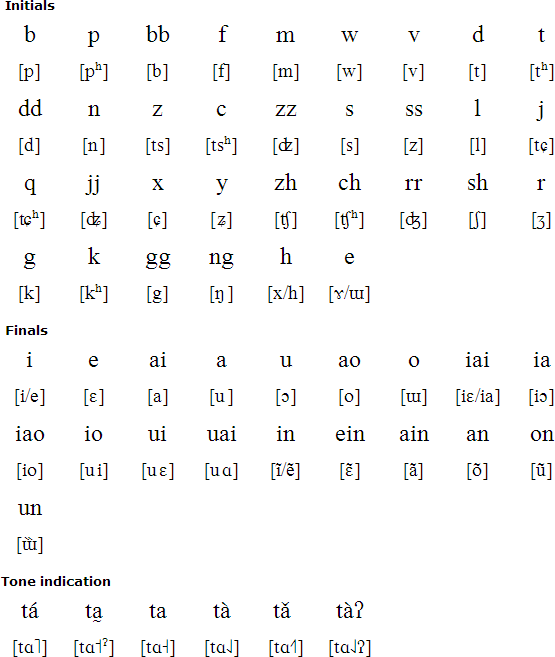Lisu is a member of the Central Loloish branch of the Lolo-Burmese language family. It is spoken by about 942,000 people in southern China, northern Myanmar (Burma), northern Thailand and northern India. There are about 600,000 speakers of Lisu in China, mainly along the Mekong and Salween rivers in Sichuan and Yunnan provinces. Lisu speakers are taught to read and write their language in churches. The language is also taught in schools, and used in literature, newspapers and on the radio.
There are about 300,000 Lisu speakers in Kachin and Shan states in northern Myanmar. There are also 40,000 speakers of Lisu in Chiang Mai, Chiang Rai, Kamphaeng Phet, Mae Hong Son, Phayao, Sukhothai and Tak provinces in Thailand, and about 2,700 in Arunachal Pradesh state in northern India.
Lisu is also known as Chedi, Cheli, Chung, Khae, Leisu, and by various other names. It is closely related to Lahu and Akha, and also to Burmese, Kachin and Yi.
Lisu has been written with a number of different scripts, including the Pollard Script, the Fraser alphabet, the Lisu syllbary and the Latin Lisu alphabet. The Lisu syllabary was created by Ngua-ze-bo, a Lisu farmer, between 1924 and 1930 and was based on the Chinese, Dongba and Geba scripts. In Myanmar a way to write Lisu with the Burmese alphabet has been developed.
The Lisu Latin alphabet is based on Pinyin and was introduced in China in 1964, however most Lisu speakers continued to use the Fraser alphabet.

Information about Lisu | Fraser Alphabet | Pollard Script | Numbers | Tower of Babel
Information about the Lisu language
http://en.wikipedia.org/wiki/Lisu_language
https://www.ethnologue.com/language/lis
https://r12a.github.io/scripts/lisu/lis.html
Achang, Akha, Bisu, Burmese/Myanmar, Hani, Lahu, Lashi, Lipo, Lisu, Lolopo, Marma, Nisu, Nusu, Nuosu, Sani, Zaiwa
Languages written with the Latin alphabet
Page last modified: 13.03.25
[top]
You can support this site by Buying Me A Coffee, and if you like what you see on this page, you can use the buttons below to share it with people you know.

If you like this site and find it useful, you can support it by making a donation via PayPal or Patreon, or by contributing in other ways. Omniglot is how I make my living.
Note: all links on this site to Amazon.com, Amazon.co.uk
and Amazon.fr
are affiliate links. This means I earn a commission if you click on any of them and buy something. So by clicking on these links you can help to support this site.
[top]